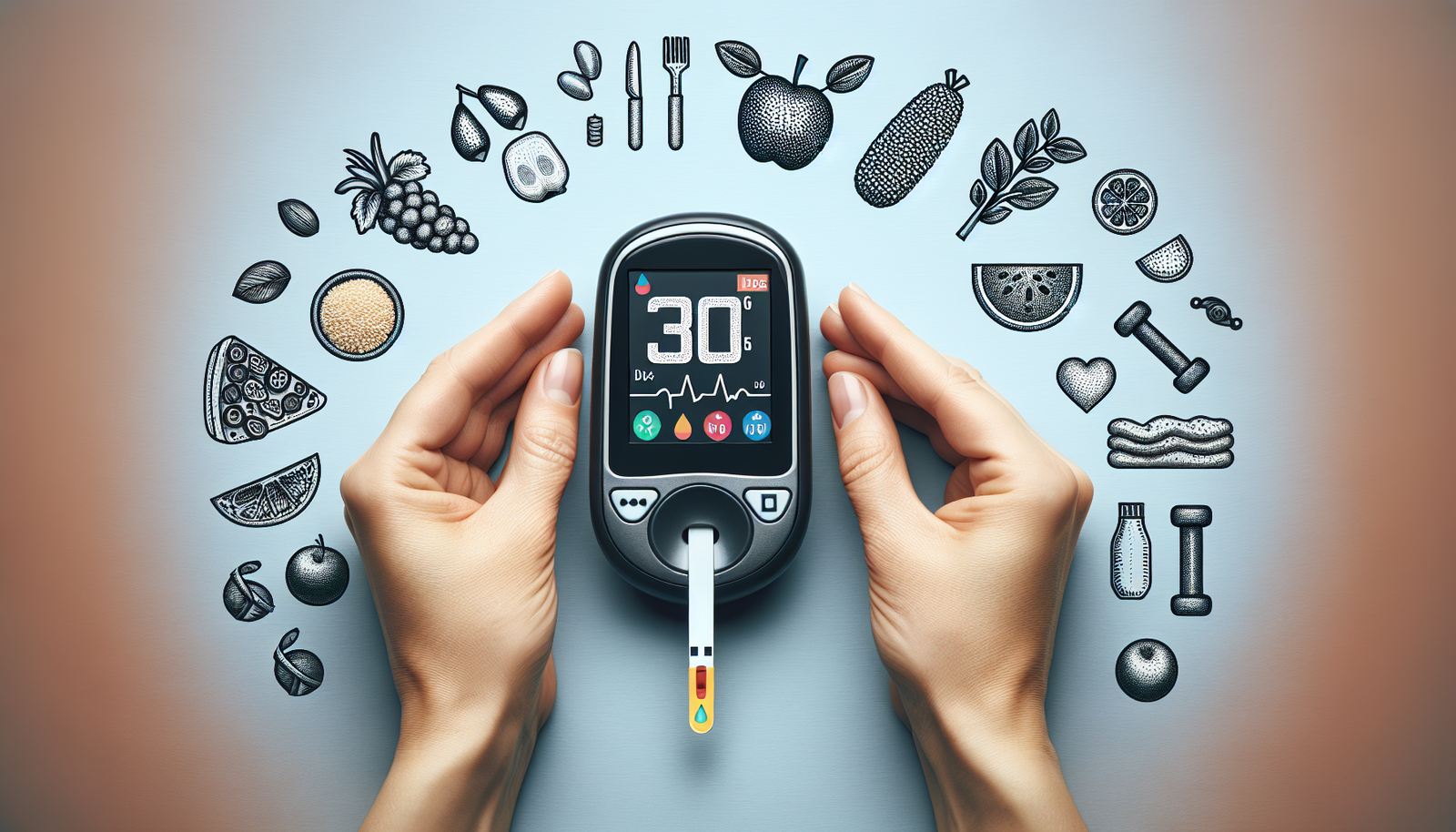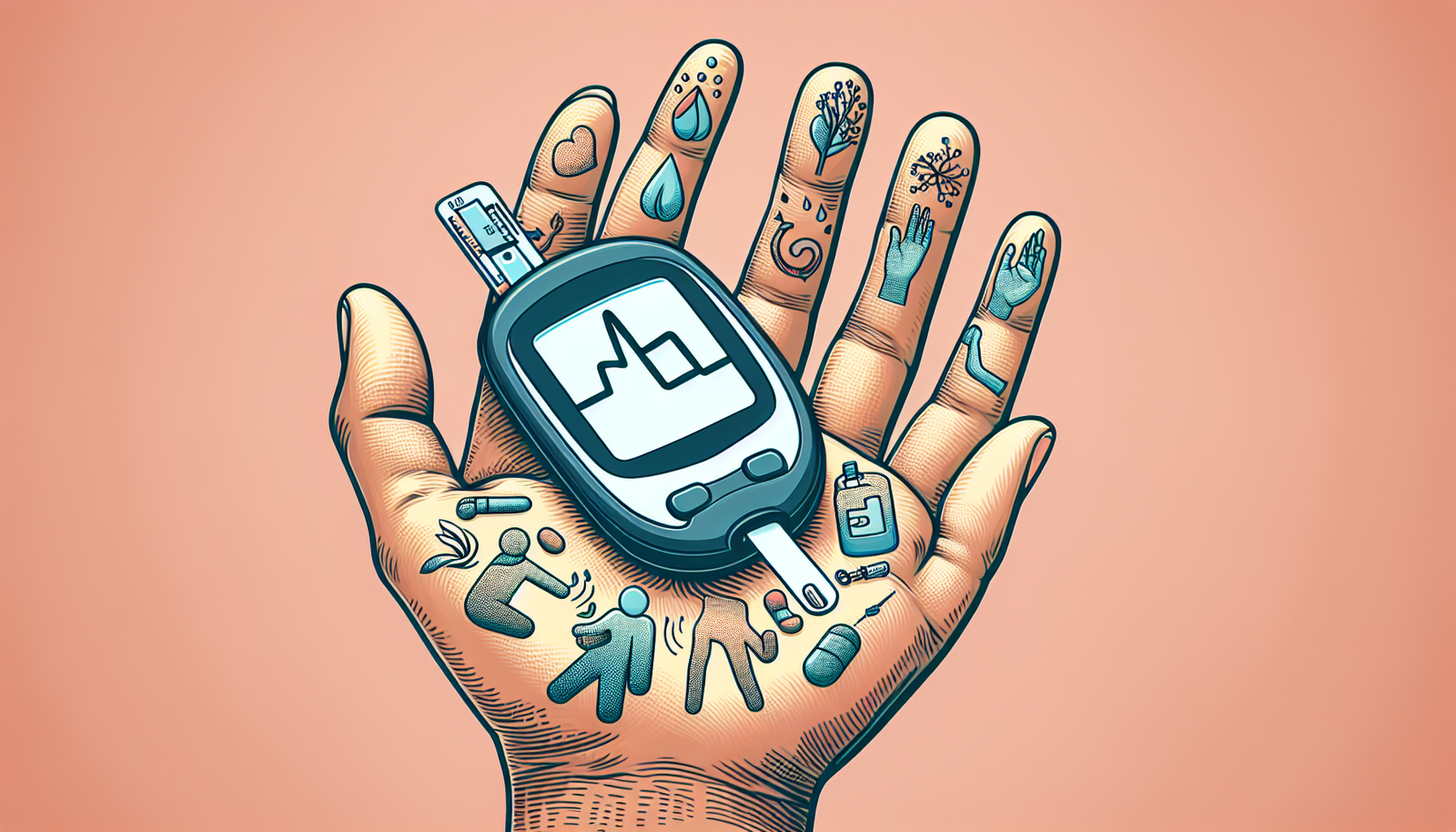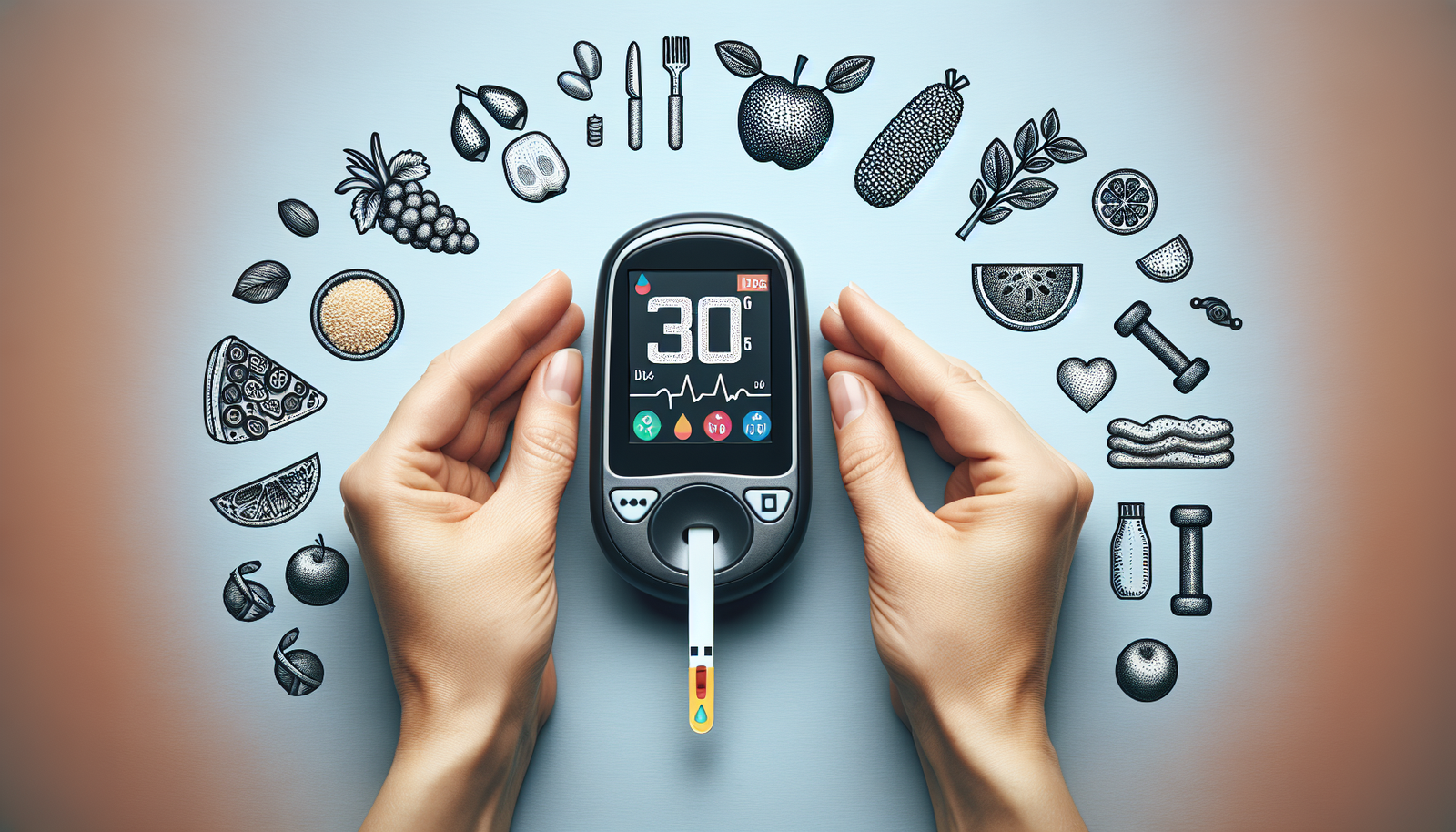
Get ready, because you’re about to know more about the nitty-gritty of hypoglycemia, more commonly known as low blood sugar. This guide, named “Understanding Hypoglycemia: A Guide to Low Blood Sugar Management”, will equip you with essential information about the causes, symptoms, and most importantly, the management of this health condition. This article could be your guide to better understanding your own health, or perhaps being a supportive friend, family member or partner to someone dealing with this issue. Here’s to empowering ourselves with knowledge for a healthier life.
Understanding Hypoglycemia
Definition of Hypoglycemia
Hypoglycemia is a condition in which your blood sugar, also known as blood glucose, is lower than normal. Blood sugar is your main source of energy and comes from the food you eat. Insulin, a hormone created by your pancreas, helps regulate the glucose in your bloodstream.
Brief Overview of Hypoglycemia
Hypoglycemia can occur in anyone, but it’s particularly common for people with diabetes. It can happen for a variety of reasons including missing meals, over-exerting oneself, or as a reaction to certain medications. Understanding hypoglycemia is crucial for managing and treating its symptoms.
Causes of Hypoglycemia
How Hypoglycemia is Caused in Diabetics
In diabetics, hypoglycemia can occur when the balance of food intake, exercise, and insulin is off. This can occur if a person takes too much insulin, skips meals, eats less than usual, or exercises more than usual. All these factors lead to lower glucose levels in the blood.
Hypoglycemia in Non-Diabetic Individuals
Even in non-diabetic individuals, hypoglycemia can happen. It could be due to certain medical conditions such as severe liver illnesses, disorders of the kidneys, a long-term starvation state, or problems related to the stomach’s ability to absorb food.
Medications and Hypoglycemia
Several medications can cause hypoglycemia, especially in diabetics. These may include insulin or other diabetes medications. In non-diabetics, other medications like antibiotics could potentially lower blood sugar levels.
Alcohol and Hypoglycemia
Alcohol can also cause hypoglycemia, especially if consumed on an empty stomach. It can make it more difficult for your liver to produce glucose, thus leading to lower blood sugar.
Symptoms of Hypoglycemia
Physical Symptoms of Low Blood Sugar
The symptoms of hypoglycemia can vary, but common physical symptoms include shakiness, dizziness, sweating, and rapid heartbeat. Other symptoms might be hunger, headache, blurred vision, and nausea.
Mental Effects of Hypoglycemia
Hypoglycemia can also cause mental or behavioural changes, such as confusion or disorientation. It may result in mood changes and feelings of anxiety or weakness.
Warning Signs Your Blood Sugar is Too Low
If hypoglycemia progresses without treatment, it can lead to more severe symptoms such as seizures or loss of consciousness. It’s crucial for you to recognize these early warning signs to prevent further complications.
Complications from Prolonged Hypoglycemia
Short Term Complications
Short term complications of hypoglycemia can include confusion, loss of balance and coordination, and difficulty speaking. If left untreated, it can lead to loss of consciousness, seizures or even coma.
Long Term Effects of Hypoglycemia
Prolonged hypoglycemia can have long term effects. It may potentially damage the nervous system or the brain. Furthermore, repeated incidents of severe hypoglycemia can lead to learning difficulties or memory problems.
Severe Hypoglycemia and Its Risks
Severe hypoglycemia is when your blood sugar level becomes so low, you need assistance from another person to recover. This critical condition can lead to life-threatening complications such as heart disease or brain damage.
Diagnosing Hypoglycemia
Importance of Proper Diagnosis
Getting a proper diagnosis is essential in order to manage hypoglycemia correctly. It can also help to identify the underlying causes which can be crucial in preventing future episodes.
Methods of Testing for Hypoglycemia
There are several tests to diagnose hypoglycemia. A fasting blood sugar test measures your blood glucose after not eating for at least eight hours. Random blood sugar testing checks your blood glucose at different times throughout the day, irrespective of when you’ve eaten last.
Understanding your Test Results
Understanding your test results will help you know how to manage hypoglycemia more effectively. Normal blood sugar is typically between 70 and 100 milligrams per deciliter after fasting and below 140 milligrams per deciliter two hours after eating.
Managing and Treating Hypoglycemia
First Aid for Hypoglycemia
If you experience an episode of hypoglycemia, it is essential to act quickly. Consuming something high in sugar like fruit juice or glucose tablets can help restore your blood sugar levels.
Long Term Management Strategies
In the long term, managing hypoglycemia means maintaining a balance of diet, exercise, and possibly medication. It may also involve regular monitoring of blood glucose levels.
Adjusting Diet to Prevent Hypoglycemia
Adjusting your diet can play a huge role in managing hypoglycemia. This involves consuming meals and snacks regularly throughout the day. Foods high in complex carbohydrates and proteins can help stabilize blood sugar levels.
The Role of Medication in Managing Hypoglycemia
Medication is another integral part of managing hypoglycemia, especially for those with diabetes. Adjusting the dosage or switching medications might be necessary to maintain a balance in blood sugar levels.
Lifestyle Changes for Hypoglycemia Management
Dietary Changes and Hypoglycemia
Making dietary changes is an essential part of managing hypoglycemia. Consuming smaller, more frequent meals throughout the day and incorporating more proteins and complex carbs, while avoiding excess sugars can help manage and prevent hypoglycemia.
Exercise and Hypoglycemia
While regular exercise is essential for overall health, you need to take extra care when exercising with hypoglycemia. Monitor your blood glucose levels closely during and after physical activity.
The Importance of Regular Checkups
Regular checkups with healthcare professionals help in creating a personalized management plan and monitoring any potential changes in condition.
Stress, Sleep and Hypoglycemia
Managing stress and ensuring good quality sleep can also help in managing your blood sugar levels. Stress can cause your body to produce hormones that raise blood glucose levels, while sleep deprivation may impair insulin sensitivity.
Hypoglycemia and Special Populations
Hypoglycemia in Children
Hypoglycemia can be particularly dangerous in children as they may not always recognize the symptoms. Parents should know how to recognize the signs and what to do in case of a hypoglycemic episode.
Managing Hypoglycemia in the Elderly
Elderly individuals might have a more difficult time recognizing the symptoms of hypoglycemia. Regular check-ups with healthcare professionals and possibly additional assistance to manage and monitor their condition are needed.
Hypoglycemia in Pregnant Women
Pregnant women, especially those with gestational diabetes, may experience hypoglycemia. It is essential to manage the condition closely to prevent any harm to both the mother and baby.
Athletes and Hypoglycemia
Athletes, especially those with diabetes, need to keep a close eye on their blood glucose levels during and after their workouts. They need to adjust their food and fluid intake accordingly to prevent hypoglycemia.
Preventing Hypoglycemia
Knowing your Triggers
To prevent hypoglycemia, it’s important to know your triggers. By knowing what can potentially lower your blood sugar levels, you’ll be able to prevent episodes before they happen.
Proper Meal Planning
Proper meal planning is a critical aspect of preventing hypoglycemia. Ensuring your meals and snacks contain a balance of complex carbohydrates, protein, and healthy fats can help keep your blood sugar steady.
Regular Monitoring of Blood Sugar
Regularly monitoring your blood sugar levels is vital to prevent hypoglycemia. By catching low blood sugar early, you can treat it before it causes severe problems.
Prevention through Medication
Lastly, you can prevent hypoglycemia with suitable medication. Your doctor might adjust your medication or change it entirely to ensure better blood sugar control.
Living with Hypoglycemia
Coping with a Hypoglycemia Diagnosis
When first diagnosed with hypoglycemia, it’s not unusual to feel a range of emotions. However, with proper management and care, you can lead a healthy and normal life.
Building a Support Network
A strong support network of friends, family, and healthcare professionals can be essential in managing and living with hypoglycemia. Their understanding and assistance can prove invaluable.
Educating Others About Hypoglycemia
Letting those around you know about your condition can be crucial, especially during an emergency. More than that, educating others about hypoglycemia will increase awareness and understanding of this health issue.
Dealing with Emergency Situations
Despite your best efforts, severe hypoglycemic episodes can still happen. In such cases, knowing how to deal with these emergency situations is vital. Having a plan in place, and ensuring loved ones know this plan can be lifesaving.
To summarize, living with hypoglycemia is manageable with proper understanding, monitoring, and control of your blood sugar levels. With care and a proactive approach to managing your health, it’s possible to lead a normal, healthy life.






Leave a Reply